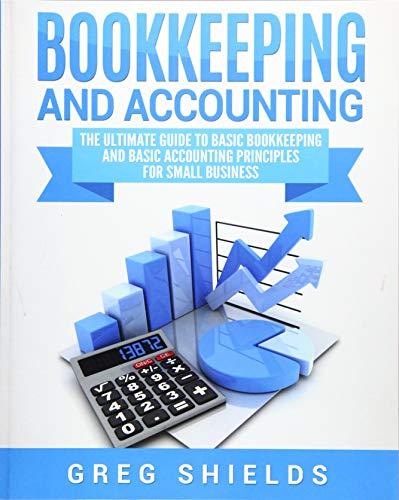

Background: Louise Wuitton (LW) is a New Zealand-based fashion label which specialises in creating luxury garments for both men and women. LW sources fabrics and other items for their garments locally, and the garments are made in a workroom in Auckland by a team of tailors and seamstresses who are paid at least the standard living wage of $22.10 per hour, depending on their experience. LW commenced operations in 2015, and since then, the company has gained a strong reputation in the marketplace for producing high-quality, fashion-forward clothing at a reasonable price. They have also been recognised as one of New Zealand's top employers, based on their policies around safe working conditions, employee well-being, and above average hourly wages. Their strong reputation has contributed to growing revenue since 2015, and in the last financial year, the company reported its best ever earnings performance. In the last 18 months, a number of overseas competitors have entered the New Zealand marketplace. These competitors are able to produce similar clothing designs to LW at a much lower cost, given the differences in the cost of labour and materials in the overseas factories. Additionally, the impact of COVID-19 has resulted in lower than anticipated revenue for LW for the first half of the 2020 financial year, and the senior management team anticipates that the situation is likely to deteriorate further unless the company can find a way to cut their costs of production in order to remain competitive. If cost savings cannot be found, the company risks becoming insolvent in the next two years. The company's CEO believes that the best option for LW is to outsource the manufacturing of their garments to a third-party company located in Bangladesh. This would drastically reduce the costs associated with production, as the standard wages paid in the garment industry in Bangladesh are much lower than those paid by LW in New Zealand. Additionally, the third- party manufacturer would be able to source cheaper fabrics from which to make the garments. There are differing views among the other members of the senior management team - some agree that this proposal seems like the best course of action for LW. However, other members of the senior management team are concerned that outsourcing production to Bangladesh would harm the company's brand image and reputation, resulting in further deterioration of the company's bottom line in the long-term. Among their concerns, they cite the well-known poor working conditions associated with the garment manufacturing industry in Bangladesh, the low wages paid to the workers in the factories there (who tend to be poorer women and girls with no skills or training that would enable them to obtain better employment elsewhere), and the possible negative environmental consequences of producing clothing using cheaper fabrics. Required: Use the ethical decision-making framework discussed in lectures to evaluate the ethical dilemma in the above scenario, AND issue a recommendation to the senior management team of Louise Wuitton (LW) based on your evaluation. [TOTAL OF 30 MARKS] Background: Louise Wuitton (LW) is a New Zealand-based fashion label which specialises in creating luxury garments for both men and women. LW sources fabrics and other items for their garments locally, and the garments are made in a workroom in Auckland by a team of tailors and seamstresses who are paid at least the standard living wage of $22.10 per hour, depending on their experience. LW commenced operations in 2015, and since then, the company has gained a strong reputation in the marketplace for producing high-quality, fashion-forward clothing at a reasonable price. They have also been recognised as one of New Zealand's top employers, based on their policies around safe working conditions, employee well-being, and above average hourly wages. Their strong reputation has contributed to growing revenue since 2015, and in the last financial year, the company reported its best ever earnings performance. In the last 18 months, a number of overseas competitors have entered the New Zealand marketplace. These competitors are able to produce similar clothing designs to LW at a much lower cost, given the differences in the cost of labour and materials in the overseas factories. Additionally, the impact of COVID-19 has resulted in lower than anticipated revenue for LW for the first half of the 2020 financial year, and the senior management team anticipates that the situation is likely to deteriorate further unless the company can find a way to cut their costs of production in order to remain competitive. If cost savings cannot be found, the company risks becoming insolvent in the next two years. The company's CEO believes that the best option for LW is to outsource the manufacturing of their garments to a third-party company located in Bangladesh. This would drastically reduce the costs associated with production, as the standard wages paid in the garment industry in Bangladesh are much lower than those paid by LW in New Zealand. Additionally, the third- party manufacturer would be able to source cheaper fabrics from which to make the garments. There are differing views among the other members of the senior management team - some agree that this proposal seems like the best course of action for LW. However, other members of the senior management team are concerned that outsourcing production to Bangladesh would harm the company's brand image and reputation, resulting in further deterioration of the company's bottom line in the long-term. Among their concerns, they cite the well-known poor working conditions associated with the garment manufacturing industry in Bangladesh, the low wages paid to the workers in the factories there (who tend to be poorer women and girls with no skills or training that would enable them to obtain better employment elsewhere), and the possible negative environmental consequences of producing clothing using cheaper fabrics. Required: Use the ethical decision-making framework discussed in lectures to evaluate the ethical dilemma in the above scenario, AND issue a recommendation to the senior management team of Louise Wuitton (LW) based on your evaluation. [TOTAL OF 30 MARKS]








